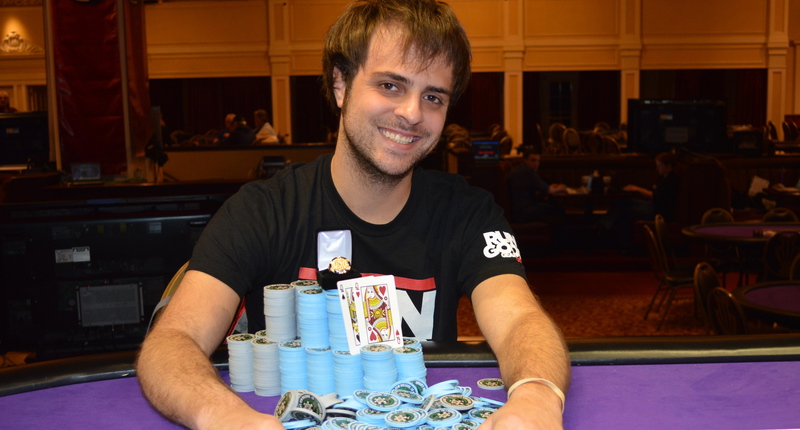






Poker Hand of the Week: 5/22/14You Decide What's The Best Play |
|
|
Give us your opinion in the comments section below for your chance at winning a six-month Card Player magazine digital subscription.
Ask any group of poker players how you played your hand and they’ll come up with dozens of different opinions. That’s just the nature of the game.
Each week, Card Player will select a hand from the high-stakes, big buy-in poker world, break it down and show that there’s more than one way to get the job done.

The Scenario
There are six players remaining in a $1,500 tournament and you are already guaranteed at least $33,796. The winner will take home $175,459. You have 2,020,000 in chips, putting you in second place. The blinds are 15,000-30,000 with a 5,000 ante, giving you 68 big blinds.
An opponent with 1,440,000, who is in fourth place, raises to 65,000 from under the gun. You look down at K 7
7 in the cutoff and three-bet to 170,000. The blinds fold and your opponent calls. So far, you have a bit of wild reputation, but your opponent is more or less an unknown.
in the cutoff and three-bet to 170,000. The blinds fold and your opponent calls. So far, you have a bit of wild reputation, but your opponent is more or less an unknown.
The flop comes down Q J
J 6
6 and your opponent donk bets 220,000. You call with your flush draw and the 5
and your opponent donk bets 220,000. You call with your flush draw and the 5 hits the turn. Your opponent doesn’t slow down, however, betting 350,000.
hits the turn. Your opponent doesn’t slow down, however, betting 350,000.
Sitting in position, you opt to once again just call. The river is the 4 , putting four hearts on board. Your opponent wastes no time before moving all in for his last 700,000. If you call and lose, you’ll be in last place and short stacked. If you win, you’ll be the chip leader.
, putting four hearts on board. Your opponent wastes no time before moving all in for his last 700,000. If you call and lose, you’ll be in last place and short stacked. If you win, you’ll be the chip leader.
The Questions
Do you call or fold? What range of hands does your opponent hold that includes the A ? What do you think of your opponent leading out on the flop after calling a three-bet preflop? Do you regret not moving all in on the turn? What kind of information are you going to use to help you make a better decision?
? What do you think of your opponent leading out on the flop after calling a three-bet preflop? Do you regret not moving all in on the turn? What kind of information are you going to use to help you make a better decision?

Bryan Campanello
Facing an all-in bet from John Kloch at the WSOP Circuit main event stop in New Orleans, Bryan Campanello opted to call with his K 7
7 on a board reading Q
on a board reading Q J
J 6
6 5
5 4
4 .
.
Kloch could only reveal K J
J , having turned second pair into a bluff. He busted in sixth place, earning $33,796.
, having turned second pair into a bluff. He busted in sixth place, earning $33,796.
Campanello went on to win the event, earning his third WSOP Circuit ring and the $175,459 first-place prize.
What would you have done and why? Let us know in the comments section below and try not to be results oriented. The best answer will receive a six-month Card Player magazine digital subscription.
